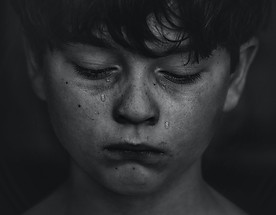
Tips for young people
OCD
Obsessive compulsive disorder symptoms can include recurrent distressing thoughts and cravings. Learn more about OCD and what to do if it affects you.
What is OCD?
Anxiety disorders include obsessive compulsive disorder (OCD). Although it may be severe, it is curable.
OCD patients have distressing recurring thoughts, pictures, or feelings. Sometimes these are referred to as "obsessions" or "obsessive thoughts." When our mind is occupied with distressing thoughts, we may attempt to act in a way that may relieve our distress and cause the thoughts to disappear. We can begin to think that by doing these steps, our uneasiness will vanish or these thoughts will stop. Rituals that help us relax might be incredibly beneficial at times. But occasionally, these customs or behaviours turn into "compulsions," making us feel as though we must follow them.
We might begin to think that if we don't follow rules, something negative will occur to ourselves or others close to us.
It's important to recogniSe that when we have OCD, our obsessive behaviours or rituals frequently worsen our symptoms. This is due to the fact that when the ritual is complete, worried thoughts often return in an even more intense form. This is how some individuals become caught in a loop of performing the same action repeatedly while feeling powerless to stop.
OCD routines may be visible to others (such as verifying that doors are locked) or they may just occur in your head (like counting things, or trying to counteract negative thoughts with positive ones).
Symptoms
Being continually terrified, disgusted, guilty, emotional, unsure, or depressed, as well as having a strong impulse to act in order to put an end to those feelings, are all common OCD symptoms.
After rituals, brief relief a requirement to seek confirmation or ask others to check things for you
It's not a guarantee that you have OCD just because you experience one or more of these signs. Consult your doctor if you need extra assistance.
Treatment
Exposure response prevention (ERP), a method used in cognitive behavioural therapy (CBT), can help you feel less bothered by your thoughts.
Additionally, you might be provided with family therapy or counselling as well as help from CAMHS-trained occupational therapists, art therapists, and specialised mental health nurses.
Antidepressants are just one example of a drug that can be helpful.

Tips from our team
Our community and other young people share their tips and advice on OCD.
The same thing happens to a lot of other people as well. Your family and friends are always there for you and will do everything they can to support you, even if they don't fully understand.
While it can be difficult to manage negative thoughts, it is best to ignore them. Simply put, your body is attempting to assist.
OCD is frequently misunderstood and is challenging to manage. However, it is totally treatable with effective therapy and occasionally, medication.
Attempt to speak with a reliable person. No matter who you choose to confide in, it's easier said than done (I know), but once you find someone, you won't regret it.
Get help now
Childline
If you’re under 19 you can confidentially call, chat online or email about any problem big or small.
Sign up for a free Childline locker (real name or email address not needed) to use their free 1-2-1 counsellor chat and email support service.
Can provide a BSL interpreter if you are deaf or hearing-impaired.
Hosts online message boards where you can share your experiences, have fun and get support from other young people in similar situations.
Opening times:
24/7
0800 11 11
Samaritans
Whatever you're going through, you can contact the Samaritans for support. N.B. This is a listening service and does not offer advice or intervention.
Opening times:
24/7
116123
More information & support

Depression

Anxiety
Suicidal thoughts

Self harm

You are not alone...
We can assist you whether you want to learn more about how you're feeling and discover strategies for feeling better or if you want to support someone who is having a hard time.


I am a young person

Join the team
I work with young people

